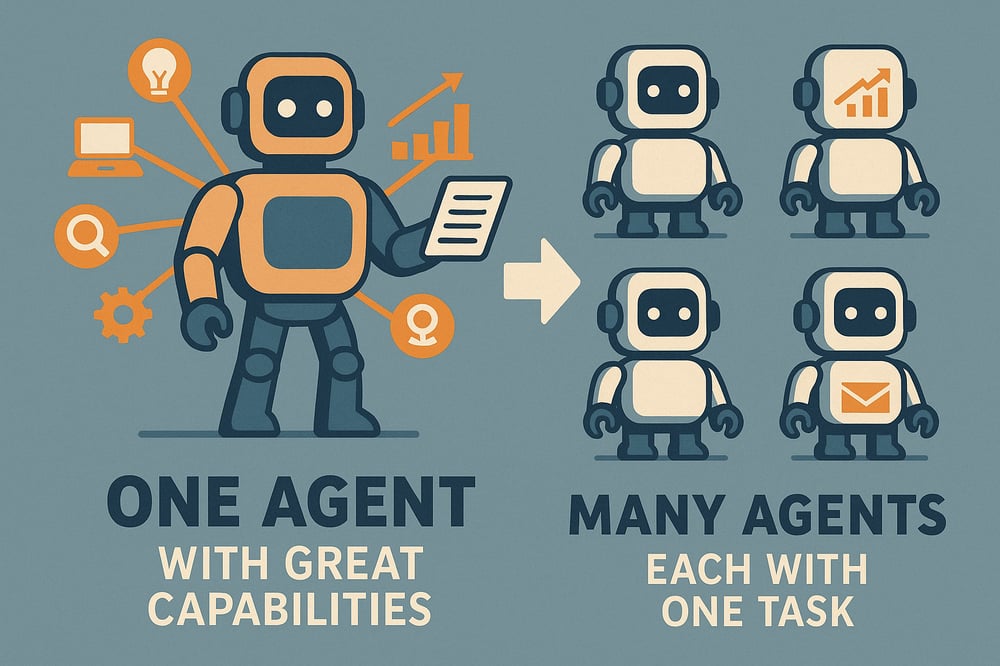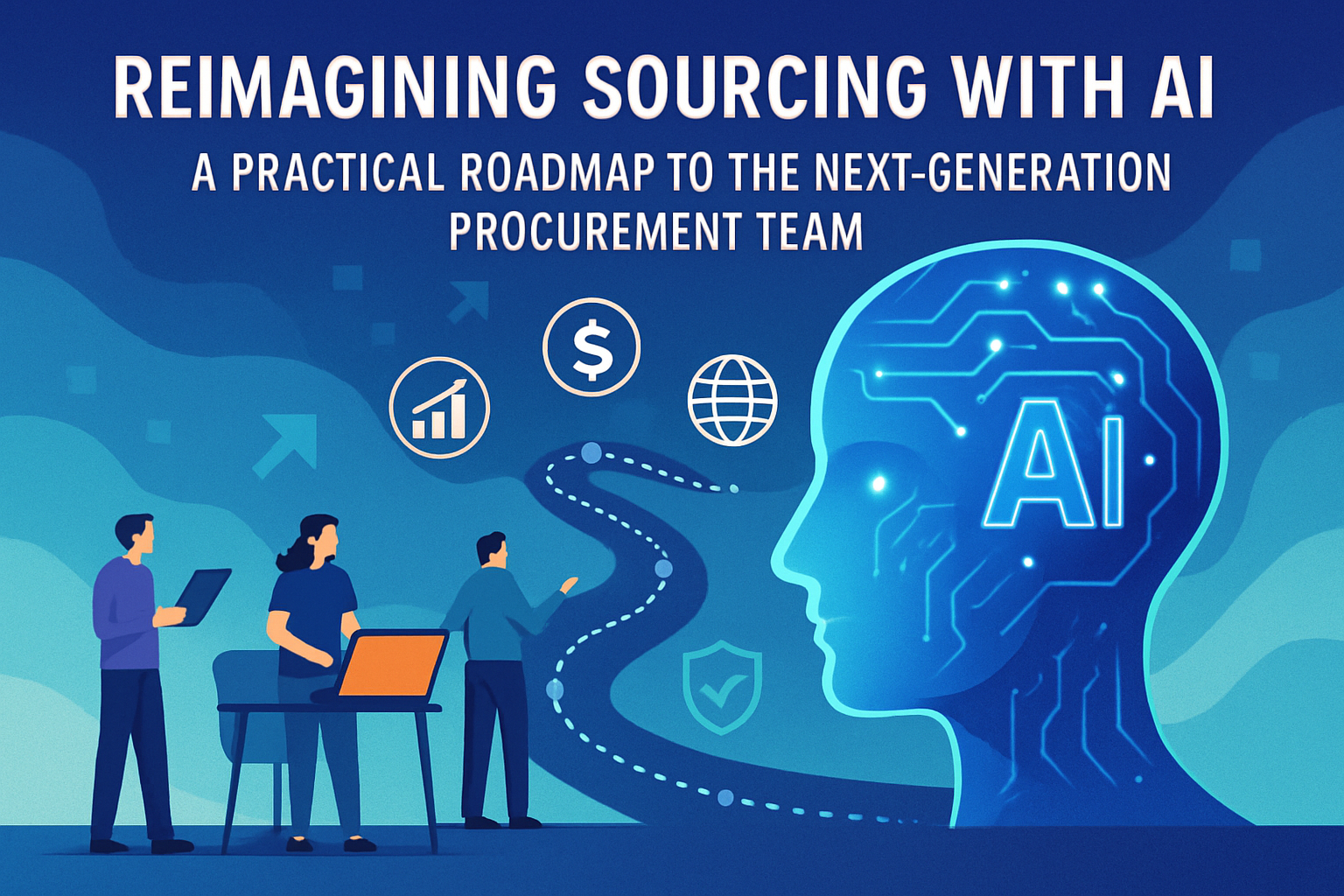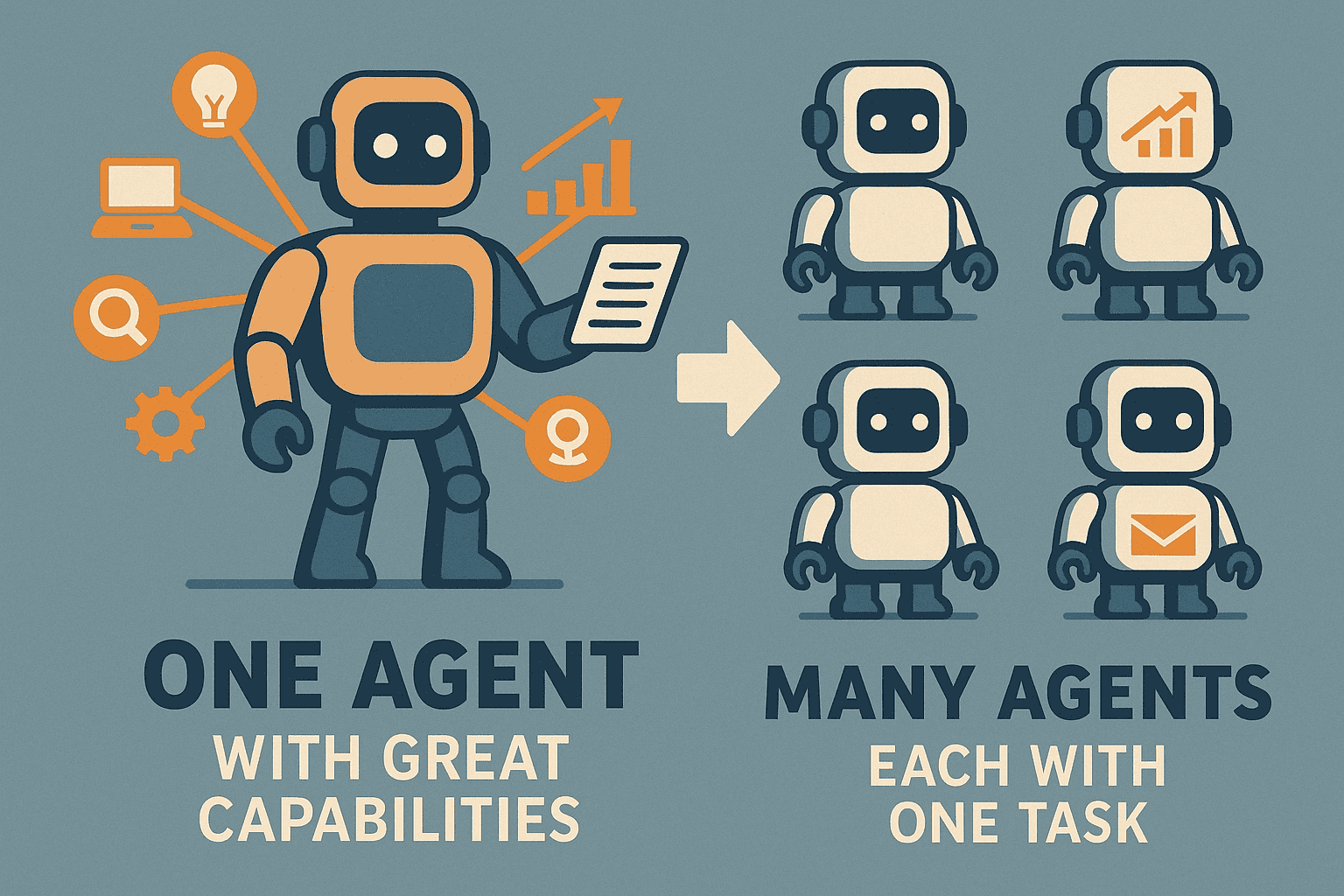Why Procurement Should Prioritize Range Over Quantity When it Comes to AI Agents

Companies are in a race to build more agents. In trying to win by sheer volume, they’re reducing agents to simple task executors, prioritizing quantity over quality, and ending up with narrow bots that lack real range, perspective or intelligence. That got me thinking about one of my favorite books, Range: Why Generalists Triumph in a Specialized World by David Epstein.
Epstein makes a compelling case that in a complex and unpredictable world, the most successful experts often start as generalists. He argues that exploring broadly across different domains, rather than specializing early, enables deeper creativity and better problem-solving. Inherently, this is why many company leaders have come through cross-functional management development programs. The book challenges the conventional wisdom behind early specialization and the 10,000-hour rule popularized by Malcolm Gladwell, showing through case studies in sports, science, and business that broad experience can foster the most impactful expertise. This synthesis of diverse knowledge often leads to innovative thinking and long-term success.
MORE ISN'T ALWAYS MERRIER
What struck me is how relevant the book is, not just for people but for how we should be thinking about AI agents. Range reads almost like a blueprint for building agents. It lays out, without intending to, how to get closer to Artificial General Intelligence by enabling systems to transfer learning, synthesize insights from unexpected domains far beyond what any single human can experience in a lifetime, and apply prior experience in novel ways. The future breakthrough may come from the range of insights taken from areas that haven't historically been leveraged, simply because humans can’t easily share or connect such a wide spectrum.
Humans have constraints. We learn linearly, build expertise slowly, and specialize out of necessity. Even the most versatile professionals need years to develop true cross-functional fluency. But agents aren’t bound by those limits. They start with a foundation of pre-trained knowledge, no ramp-up, no onboarding. They can instantly ingest the experience of thousands, switch roles fluidly, and see patterns humans can’t.
PRIORITIZING THE END USER
In procurement, this is especially important. Yes, it’s a specialist domain, but it’s not just one task or one job. In fact, most procurement people swivel chair throughout the day, as people constantly talk about, from category management to sourcing to supplier relationship management to ensuring supply continuity. Think about all the talent you'd need to manage trillions of dollars in trade. Imagine the range of skills, experience, knowledge, and strategic execution required. It spans sourcing, supplier discovery, stakeholder intake, requirement definition, RFP creation, negotiation, contract management, compliance, risk assessment, legal alignment, finance integration, and ongoing performance management.
Traditionally, we split this work across teams. But with agents, do we really need one per task, or should we deploy a single procurement agent with the range and depth to handle entire processes? Would the best human organizational strategy be to create silos and dozens of hand-offs?….probably not. And is this really a decision about architecture, marketing, user experience, or go-to-market strategy? Or is it about delivering what users actually need: a cohesive, intelligent partner that understands the full procurement lifecycle?
Do we need a PO agent, a supplier search agent, an SOW-writing agent, and a negotiation agent? Or can one agent do it all? And are we seeing companies reduce each agent to something overly narrow for technical, business model, or marketing reasons, often ignoring what users actually need? Let’s be clear, software companies are rolling out task-based agents because it serves their purposes for land and expand selling… NOT because it’s better for a fully connected user experience as the procurement community has been discussing for decades.
TOO MANY AGENTS SPOILS THE BROTH
Unfortunately, that’s the current trend. Startups are building agents like RPA bots instead of domain specialists, each scoped narrowly to a single task. The result feels like too many agents, not enough intelligence, and no cohesive long-term vision.
It's not a coincidence. Maybe it's driven by the belief that creating more agents increases your TAM. Maybe it sounds good in a pitch deck. But procurement professionals aren’t easily convinced. They’re ROI-driven and they deeply care about their stakeholder experiences. What they see isn’t intelligence, it’s fragmentation. It’s a race to build more agents, not cohesive ones. I was recently asked how many agents we have, as if success is measured by count rather than capability or cohesiveness in user experience.
Maybe it’s just semantics, but in this model, you end up with one agent to read, another to write, and another to do math. But those aren’t roles, they’re capabilities. You wouldn’t hire 50 people to do 50 isolated tasks. You’d hire talent who understands the broader context and equip them with the tools to scale. That’s how intelligent agents should be built, a single agent with the full range of skills and capabilities required to deliver results. Internally, yes, the architecture leverages multi-agent techniques, but the user should experience one coherent, intelligent partner, not a fragmented swarm of bots.
WHY COMPANIES LOVE GLO - PROCUREMENT'S MOST ADVANCED AGENT
At Globality, that’s what we’re doing. Glo is a full-spectrum AI agent with deep procurement expertise and broad contextual understanding, designed to reason, learn, and operate across every stage of the lifecycle, from “I have a need” to “I am now engaged with my supplier to satisfy my need”. I see Glo navigate simple and complex sourcing requests that span industries, regulations, and internal dynamics, direct and indirect, across sectors including telecom (e.g. BT), financial services (e.g. T. Rowe Price, Fidelity, Invesco), higher education (e.g. London School of Economics), consumer goods and retail (e.g. Tesco), technology and enterprise IT (e.g. HP), and others. It manages everything from tail‑spend and complex services to multi‑billion‑dollar strategic sourcing, covering thousands of categories with deep expertise and autonomous decision‑making. Glo doesn’t just respond. It understands. It adapts. It applies what it’s learned elsewhere to new, unfamiliar problems.
That’s what Range teaches us. Creativity, adaptability, and intelligence don’t come from narrow focus. They come from breadth, from drawing connections across industries, from learning across boundaries. That’s the real path to superintelligence, and the design philosophy behind great agents.
Over time, we’ll see both general-purpose agents like ChatGPT or Copilot and specialist domain agents built for medicine, engineering, procurement, and more. But the domain agents that win won’t be the narrow ones. They’ll be the ones with deep range within their space, pretrained across disciplines, capable of navigating complexity, and reasoning across what was historically siloed.
The specialist agent with the broadest context wins. That’s the future we’re building toward!



